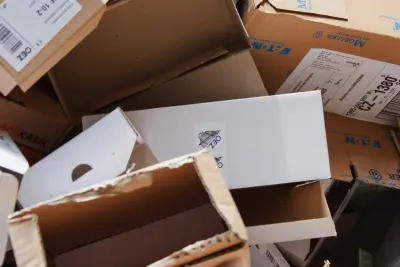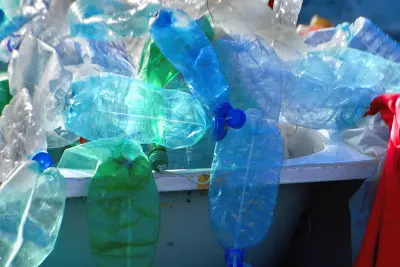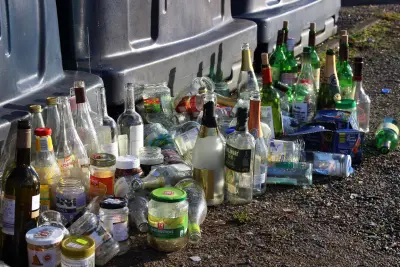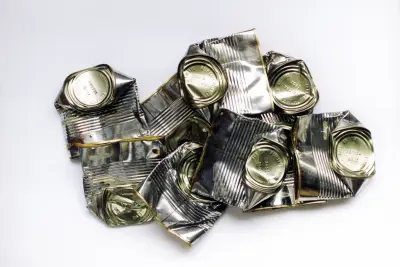Simpler Recycling, introduced by DEFRA (Department for Environmental, Food & Rural Affairs), is designed to make recycling easier and more consistent across England. By 2025, all businesses must adopt a standardised recycling approach, so you can recycle the same materials at both home and work.
This legislation will also eliminate the inconsistent recycling practices that currently exist across different local authorities. It ensures that every household and business will recycle the same materials, helping the UK increase recycling rates and move toward a zero-waste, circular economy.
By 31st March 2025, all businesses and non-domestic premises must be compliant with the new legislation or have their exemption paperwork in place. (See the section on exceptions.) Local authorities and microbusinesses (businesses with fewer than 10 employees) have different timelines to allow the waste and recycling infrastructure to adapt and grow without being overwhelmed.
This information is current as of January 2025. If there are any updates to the regulations, we will make sure to provide the latest details as soon as possible.
Simpler Recycling is designed to improve recycling rates in England, which have stagnated at around 45% since 2015. The goal is to raise this rate to 65% by 2035, making it easier for businesses and households to recycle more effectively.
The new system will work alongside other government strategies within the Circular Economy initiative, including the Extended Producer Responsibility for packaging and the Deposit Return Scheme for drinks containers. (See links EPR, DRS).
By 2027, all of England will have a universal standard for bin collections, ending the “postcode lottery” where local authorities collect different materials. This will help divert more recyclable materials from landfills and incineration. While there may be some exceptions in how recycling is collected, as of January 2025, there are no planned exceptions for not collecting recycling.
Previously, there were proposals to require households to use up to seven bins, which would have been unnecessarily complicated. Research has shown that four bins strike the right balance between ease of recycling, processing, and participation costs.
Simpler Recycling will affect all businesses, households, and most non-domestic premises across England, ensuring that the same materials are recycled nationwide.
Simpler Recycling will roll out in three phases. Here’s how each phase will affect England:
Businesses and non-domestic premises must have segregated waste and recycling by March 31, 2025.
Local authorities must collect segregated waste from all households, including weekly food waste collection.
Micro-businesses must separate waste by March 31, 2027. Plastic film collection starts for all businesses.
The Environment Agency (EA) will help businesses understand their responsibilities under the Simpler Recycling legislation and ensure compliance when the regulations come into effect.
If a business is found to be non-compliant, the EA will first provide guidance and advice on how to rectify the situation. If the business fails to follow this advice, the EA will issue a compliance notice. If the notice is not followed, the EA will take further action in accordance with their enforcement and sanction policy.
Starting in April 2025, the general public will also be able to report non-compliance to the Environment Agency. Currently, there are no specific guidelines for public reporting, but DEFRA plans to release updated guidance once available.
The exact details of fines for non-compliance have not yet been decided.
Simpler Recycling legislation will apply only in England. This is because the devolved governments in Wales and Scotland have their own recycling and waste management policies.
Each of these governments is able to implement practices that best suit their specific needs. Wales, for example, has been a leader in recycling, with a recycling rate of around 67%, exceeding the national 65% target.
England has traditionally taken a decentralised approach to recycling, with local authorities choosing their own collection systems. Simpler Recycling has been designed to address the unique challenges in England, drawing inspiration from the successful strategies used in Scotland and Wales.
All businesses and non-domestic premises must present the same materials that are covered in Englands legislation with the caveat of food and drink containers must be empty and rinsed before being put in the bin. And most food businesses need to seperate their food waste.
In April 2024 Wales made it law for all business and other non-domestic premises and charities to seperate their waste in 6 waste streams that must be stored and collected seperately.
Starting in March 2025, your business will be required to separate recyclables into the following categories:
These four categories represent the legal minimum required separation. However, some local authorities or waste collectors may have additional guidelines or requirements for further separation. They will communicate these to you if applicable.
What if You Already Recycle?
Many businesses already separate materials like cardboard or plastic, so you may already have some of the necessary infrastructure in place. In that case, you may only need to set up bins for the other materials.
If You’re Not Recycling Yet
If your business currently places all waste in general waste, you’ll need to conduct a waste audit to determine what infrastructure you’ll need. For some materials, a small bin or food caddy may be sufficient. For others, like paper or plastic, you might benefit from baling the materials, which could qualify you for free collection or even rebates.

Plastic film made from Mono-PE, Mono-PP and mixed PE & PP will be collected from April 2027.

All paper and card are in scope, except for the following:


Includes:

All glass jars and bottles.

Includes:
Simpler Recycling allows some flexibility for certain businesses. If separating card and paper from other recyclables is not practical for your business, you may apply for an exemption based on one of these conditions:
Businesses must keep a written assessment to justify any exemption. Be sure to store these records in case you need to present them to the Environment Agency.
There is no exemption available for not collecting recycling. All businesses must collect recyclables, even if they are not separating them into paper and cardboard.
In some cases, businesses that need more time to implement the necessary infrastructure may be eligible for transitional funding. Currently, this funding is mostly aimed at helping with food waste collection.
Additional Information:
There may be other reasons you can use to apply for an exemption. However, it’s not necessary to submit the written assessment unless asked to by the Environment Agency or the public. These assessments must be kept on file and available for review if needed.
As of January 2025, there are no significant changes to the Simpler Recycling legislation expected. However, government funding to support businesses in implementing the new recycling standards is scheduled to roll out by the end of the financial year.

It’s easy to check if your business is compliant. Simply ask yourself:
If you’re not sure, contact us for a waste audit, or email info@pearce-recycling.co.uk for guidance.
If you read all that and you still aren’t sure what you need, or even if you do understand it all and need some help getting set up, our team are ready to help today!
